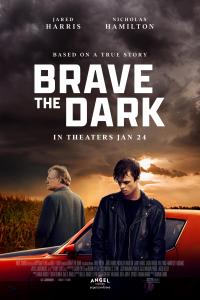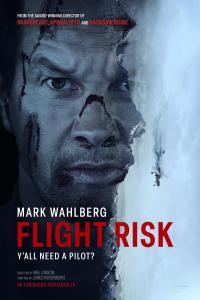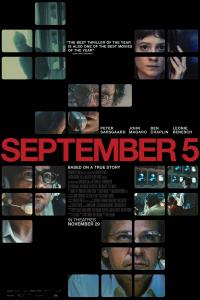Torrent details for "Thinking about Cybersecurity: From Cyber Crime to Cyber Warfare" Log in to bookmark
Controls:
Language:
 English
EnglishTotal Size:
8.18 GB
Info Hash:
74360842f9c34d6922a520027f9490b810b4ed59
Added By:
Added:
04-02-2023 04:13
Views:
552
Health:

Seeds:
4
Leechers:
3
Completed:
316

Description
Cyberspace is the 21st century’s greatest engine of change. And it’s everywhere. Telecommunications, commercial and financial systems, government operations, food production – virtually every aspect of global civilization now depends on interconnected cyber systems to operate; systems that have helped advance medicine, streamline everyday commerce, and so much more. Which makes keeping these systems safe from threat one of the most pressing problems we face.
There are billions of Internet users connected to one another, and every minute, these parties create mind-boggling amounts of new information and data. Yet because cyberspace is so vast, flexible, and unregulated (and because it grows in leaps and bounds every year), all these users are highly vulnerable to dangers from cyber criminals, rogue nation-states, and other outside forces.
Just how important an issue is cybersecurity? Consider these points:
Every minute, individuals and organizations hack multiple websites around the world.
Each year, experts discover millions of new pieces of malware designed to illegally tamper with computer systems.
Yearly, cyber crime leads to astounding global monetary losses of billions and billions of dollars.
In just a single year, millions of people will find themselves the victims of cyber identity fraud.
Public policymakers and technology experts agree: Cybersecurity and the issues associated with it will affect everyone on the planet in some way. That means the more you know about this hot-button topic, the better prepared you’ll be to protect yourself, to weigh in on the political and ethical issues involved, and to understand new threats (and new solutions) as they emerge.
Thinking about Cybersecurity: From Cyber Crime to Cyber Warfare is your guide to understanding the intricate nature of this pressing subject. Delivered by cybersecurity expert and professor Paul Rosenzweig of The George Washington University Law School, these 18 engaging lectures will open your eyes to the structure of the Internet, the unique dangers it breeds, and the ways we’re learning how to understand, manage, and reduce these dangers. Combining an expert lecturer with a fascinating topic, this course is a riveting learning experience that immerses you in the invisible world of codes, computer viruses, and digital espionage, and offers an enthralling look at the high-stakes battles of tomorrow.
Explore the Range of Cyber Threats Out There
Thinking about Cybersecurity is laid out in a clear, systematic fashion so that you never feel overwhelmed by a topic that can seem mindboggling. Professor Rosenzweig starts by giving you a solid foundation of how the Internet and cyberspace are built, why cyber systems work the way they do, and how technical experts and scientists have attempted to “map” them out.
From there, you’ll take a comprehensive look at the different types of viruses and vulnerabilities infecting the cyber domain and interfering with both technology and the real aspects of life that technology supports. You’ll explore an entire cyber arsenal of threats both large and small, including:
spiders, automated programs that crawl around the Internet and harvest personal data;
keystroke loggers, programs that actually capture the keystrokes entered on a computer’s keyboard; and
advanced persistent threats, which intrude into computer systems for long periods of time and make computers vulnerable to continuous monitoring.
And those are only a few. Using case studies drawn straight from contemporary headlines, Professor Rosenzweig gives you a solid grasp of who in cyberspace is using these and other weapons – individual hackers, “hacktivists,” crime syndicates, and, increasingly, large nations – and what their motivations are for doing so.
Probe Intriguing Cybersecurity Issues
While we can never completely protect cyberspace from threat, we are far from helpless. Thinking about Cybersecurity focuses on some of the high-tech methods corporations and governments are developing and using to find cyber threats, protect themselves from future attacks, track down perpetrators, and stave off the threat of all-out cyber war.
But you’ll also go deeper than that. You’ll examine the intricate law and policy issues involved in dealing with these threats.
How do government constitutions both protect civil liberties and limit the ability of people to protect themselves?
How should privacy be defined in a modern world where personal data can now be tracked and shared?
Should cyber warfare follow the same rules of armed conflict that exist on the physical battlefield, or do we need to come up with new ethics and rules?
In addition, you’ll get a chance to place everything you’ve learned about cybersecurity in the context of everyday life. Professor Rosenzweig offers sensible tips on how best to protect yourself, your network, or your business from attack or data loss.
Understand, Manage, and Reduce Your Risks
Central to Thinking about Cybersecurity is Professor Rosenzweig’s expertise in this relatively new field. As a former deputy assistant secretary for policy in the U.S. Department of Homeland Security, an author of noted books on cyberspace and national security, and a frequent lecturer on cybersecurity law and policy, he is the perfect guide for a journey deep into the heart of this all-important subject.
Accompanying his informative lectures are a wealth of dynamic green-screen effects, 3-D animations, and other visual tools that help you understand:
theoretical views of cyberspace,
how information spreads around the world,
how viruses attack computer systems, and
how special tools and programs block those attacks.
By actually immersing you in the cyber world, the green-screen sequences in particular make learning about cybersecurity more engaging and visually accessible than anything you could find in a textbook.
Professor Rosenzweig takes care to emphasize throughout Thinking about Cybersecurity that the situation is never hopeless, despite the seriousness of cybersecurity threats and the rapidly evolving challenges they present. “Internet openness brings risks and dangers that cannot be eliminated,” he notes. “But they are risks that can be understood, managed, and reduced. By the end of this course, you’ll have a greater appreciation for what governments and individuals are doing – and can do – to reduce these risks.”
Disclaimer: The views expressed in this course are those of the professor and do not necessarily reflect the position or policy of the U.S. Department of Homeland Security, the U.S. Department of Defense, or the U.S. government.










































